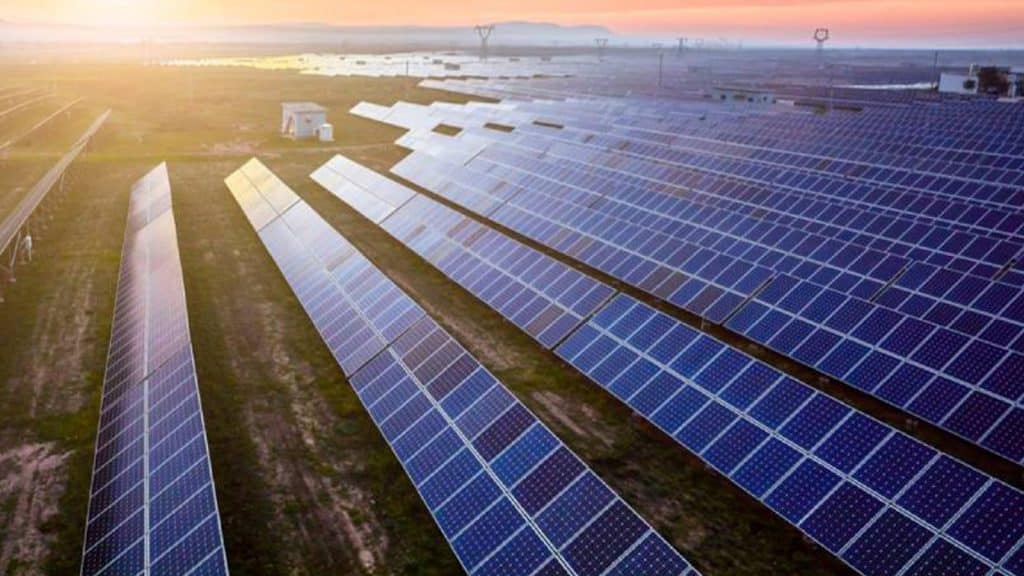
Nicaragua will become the first nation in the region that will have a photovoltaic plant for the generation of renewable energy, which will be built in alliance with the company China Communications Construction Company Limited (CCCC)
“Nicaragua will be the first country in the region that will build an exclusive photovoltaic plant for the generation of clean energy, after the unanimous approval of the Legislative Decree of the Credit Facility Agreement between Nicaragua and China,” highlighted the Parliament of Nicaragua in its official account of X.
In this context, recently, the Nicaraguan Legislature approved the Credit Facility Agreement between Nicaragua and the company China Communications Construction Company Limited (CCCC), for the design and construction of a photovoltaic megaplant for an amount of 65 million 960 thousand euros.
«The photovoltaic plant that will be located in the town of Las Mangas, San Isidro – Matagalpa, will serve to pump water, thus strengthening access to the vital quality liquid, benefiting more than 3 million 740 thousand inhabitants,» highlighted the Parliament in its official statement.
This megaproject is aimed at strengthening the operation and energy efficiency of the Nicaraguan Aqueduct and Sewage Company (ENACAL). “In addition, it will promote the generation of energy with renewable sources in accordance with the change in the national energy matrix,” the National Assembly stated.
Advances in drinking water coverage in Nicaragua
In the debate of this legislative decree, Representative Jenny Martinez, president of the Infrastructure and Public Services Commission, highlighted the importance of the megaproject in the evolution of Nicaragua since 2007.
«Let us remember that before 2007 we had many problems regarding drinking water and sanitation and we must remember that the neoliberal governments wanted to privatize drinking water, but when the Sandinista Government came to power the first thing that was done was to create actions to reverse all those processes and we approved a law that water cannot be privatized under any aspect,» Martinez added.
Prior to 2007, drinking water coverage in Nicaragua was 65%, and currently it exceeds 90% throughout the national territory, as mentioned by the representative of the Latin American country.
The parliamentarian, Walmaro Gutierrez, highlighted that international donors and organizations recognize that the most significant projects in reducing poverty and extreme poverty in Nicaragua are linked to “electric energy, the transformation of the energy matrix and drinking water projects and sewerage».
“When we improve the generation matrix by making it more efficient and improve the distribution networks, we are guaranteeing a better supply of drinking water to Nicaraguans, that is the first thing that must be made clear,” said Gutiérrez.
Projects for the future in Nicaragua
In an interview in “Revista En Vivo” broadcast in a national media outlet, engineer Erving Barreda, executive president of Enacal, addressed the future challenges of the Nicaraguan entity for the year 2024.
Barreda highlighted for next year the beginning of a program financed by the Central American Bank for Economic Integration CABEI and the German Development Bank (KFW), for the sanitation project of the southern bank of Managua, the Nicaraguan capital.
“The great challenge is that this year we will be able to simultaneously contract the works for Ciudad Sandino, Tipitapa and Managua,” said Barreda, emphasizing that this project represents 78% of the budget, which will boost job creation and will generate an economic impact.
You can read: Remittances increase by 28.4% in Nicaragua
Likewise, Barreda revealed that it is projected to reach 60% coverage in access to water and sanitation in urban areas by the end of 2024 in the country, with the perspective of achieving 80% between 2026 and 2027.
You may be interested in: Nicaragua achieves significant economic growth in 2023
During 2023, the ENACAL representative highlighted another significant achievement, the operational maintenance of 162 drinking water systems, with an investment of 4 billion córdobas. These systems guarantee water supply 24 hours a day to 830 thousand users, including 750 thousand homes.





